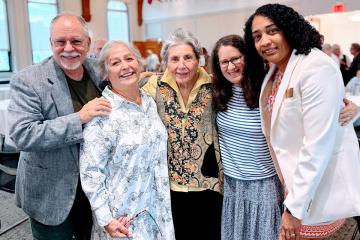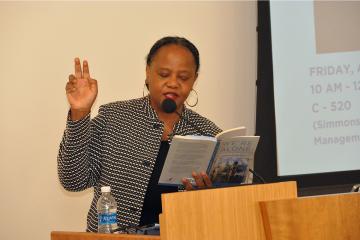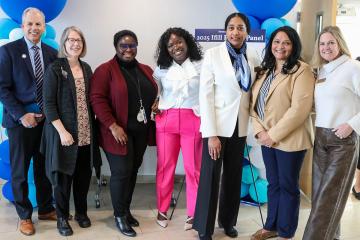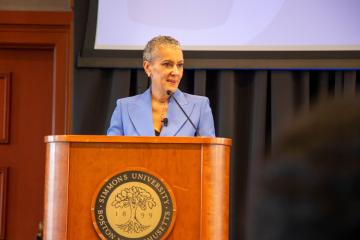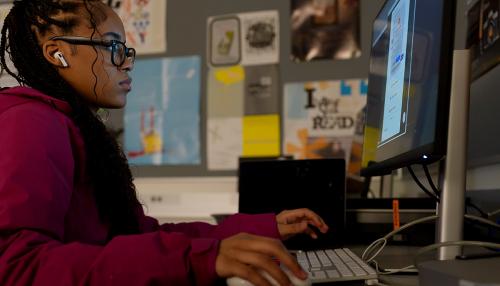
The Gwen Ifill School of Media, Humanities and Social Sciences
Honoring a legacy
The Gwen Ifill School of Media, Humanities, and Social Sciences fosters creativity and leadership skills through the multi-faceted lenses of arts, communication, film, literature, and research.
Gwen Ifill ’77, '93HD (1955–2016) is best known as a successful and much-admired television news anchor who dedicated nearly 40 years to journalism. She launched her career by writing for student publications and interning at newspapers while studying communications at Simmons.
The Ifill School honors her legacy by promoting civic engagement and celebrating different perspectives through humanistic inquiry.
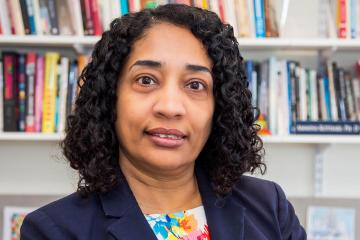
Meet the Dean
“Whether you're interested in producing compelling communication, exploring the complexities of human history, or studying the forces that shape our social structures, we have a program for you.” — Dean Ammina Kothari

Discover Our Learning Spaces
From collaborative working spaces to the CommLab and Podcast Suites, the Gwen Ifill School is built for student engagement. Explore what's available to you as a Simmons student through our 3D virtual tours.

Take the Next Step
Our programs cover it all — from public relations and communications to web design, education, and literature. Hone your creativity and critical thinking skills through engaging coursework and projects that prepare you for career success.

Tap into Your Potential
At Simmons, we cultivate a diverse and talented generation of trailblazers who are poised to become leaders in their professions and in their communities.
Get Involved, Get Inspired
Participate in the Ifill Forum, our annual event honoring Gwen Ifill and her legacy as a ground-breaking journalist. Hear firsthand from distinguished experts discussing pressing, relevant topics that have a national impact.
Build your skills through projects that foster an informed and creative public. Productions include magazines, a student radio station and newspaper, and a communications studio.
Apply for an Ifill Scholarship, which helps develop the next generation of trailblazers. Scholarships support students from underrepresented groups who demonstrate exceptional promise in the classroom.
What Makes Us Different?
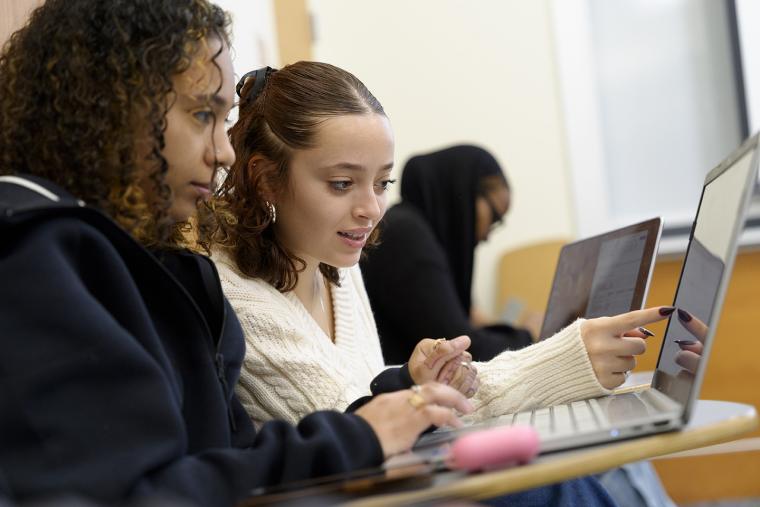
“Simmons helped me develop the essential skill of taking myself and my work as a writer seriously and prioritizing it. There were such incredible resources available to me, and I got to work with mentors who continue to influence my work and career.”
Mackenzi Lee ’14MFA
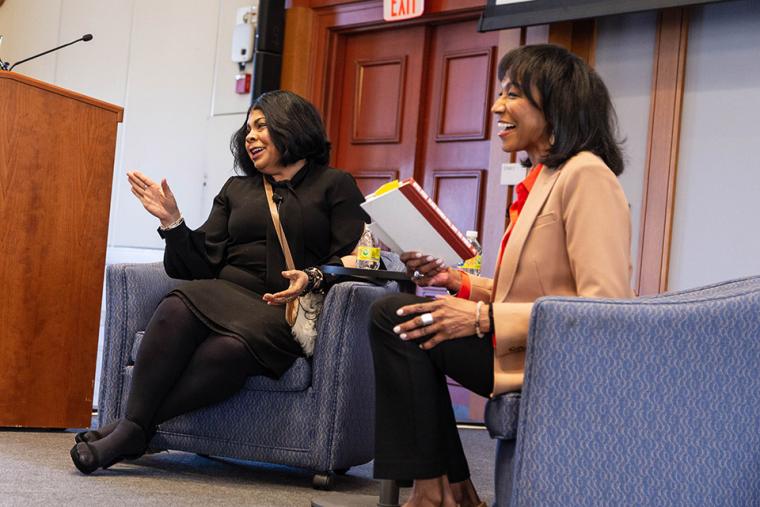
"There are people at Simmons who will recognize your potential, and you have the opportunity to be involved and integrated into the community in a way that you may not have at a larger university. My leadership was able to grow into something bigger at Simmons. It’s been a game changer.”
Bella Yee

“Don’t be afraid to explore things that are entirely new. Simmons and Boston have so much to offer.”
Julia Wilen
jumplink
Academic Departments

Communications
The Department of Communications blends integrative learning with a deep understanding of communications and media theory. You'll receive in-depth professional preparation for various fields in communications.

Humanities
The Department of Humanities is committed to connecting you with the enduring value of the humanities. You'll study human cultural expressions in art, history, languages, literatures, writing, and philosophy across the globe.
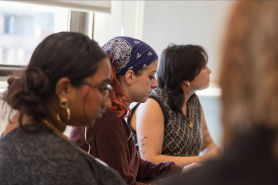
Race, Gender, and Sexuality Studies
The Department of Race, Gender, and Sexuality Studies will provide you with a rigorous education in the interdisciplinary study of identity, power, and resistance.
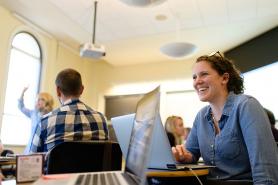
Education
With a focus on evidence-based best practices, you'll launch a meaningful career and meet the needs of all the students in your classroom.

Politics and Policy
Our programs will introduce you to the study of the institutions of government, the processes of decision-making (domestic and international), the content of these decisions (public policy), and their impact on society.
Spotlight on Our Students and Alums
The Gwen Ifill School at a Glance
30+
Undergraduate Programs of Study
The Gwen Ifill School offers a variety of majors and minors for you to choose from.
8+
Graduate Programs
Dive deeper into your chosen field with a master's degree from the Gwen Ifill School.
5
Academic Departments
Within the Ifill School, you will find the Departments of Communications, Humanities, Race, Gender and Sexuality Studies, Education, and Politics and Policy.
The Gwen Ifill School in the News
Contact Us
The Gwen Ifill School of Media, Humanities and Social Sciences
The Gwen Ifill School of Media, Humanities and Social Sciences cultivates trailblazers and leaders. Here, you'll study the modes of expression through which we record and interpret the human experience.











